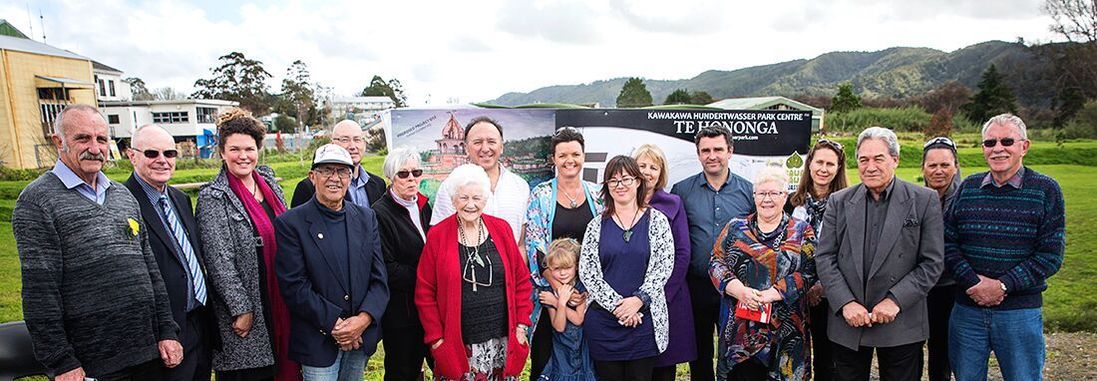|
Although central government leadership is yet to be defined, one thing is for certain. Far North District Councillor Willow-Jean Prime is now a Member of Parliament. I sincerely and wholeheartedly congratulate her. Willow-Jean is a strong advocate for Northland and has a clear understanding of the challenges and the potential. I will, however, miss her (a lot) at our council table. Her professional, fair approach and articulate argument were a real strength, one that she is respected for.
Her resignation will see the commencement of a by-election for the Bay of Islands-Whangaroa Ward. I would like to offer some advice for both prospective candidates and also for those of you voting in this ward (which I hope will be a large majority). Local government is complicated. It is heavily legislative, carries high expectations from its constituents (as it should) and is quite ‘old-fashioned’ in its approach. Councillors, although elected at a ward level, are sworn in to serve their district. This is a governance role – like a director on a board. I need to emphasise this. You are a decision-maker. Governance means setting policy and direction and not undertaking or getting involved in the operations. Many elected members from across New Zealand fail to recognise and understand the importance of this, which can cause much frustration and unnecessary conflict. Some other highly-useful approaches include big-picture thinking, being proactive and solution-focused, having patience and choosing one’s battles. Skills needed include having a clear understanding of one’s role as an elected member and the responsibility that comes with this, noting the Far North District Council’s combined operating and capital expenditure in 2017/18 is $186.3 million and, no, this is not nearly enough to achieve all that needs to be done. Prospective candidates should also know the difference between advocacy and enquiry and be able to articulate their argument clearly, as well as listen and actually hear what is being said. Finally, debate the topic and not the person and, most importantly, recognise that you are part of a team and hold one vote out of ten. Some will also say you need to have a thick skin. While I understand the importance of not taking things personally – and this isn’t always easy – I also recognise the absolute need for empathy. One needs to be a little hardened to life as a politician, but still be able to genuinely connect to what is truly important – our people and our place. For those of you voting, it is a wonderful thing to really like the person, but it is more important that you vote for someone that will bring tangible value to the table. They need to have the skills and expertise to provide leadership that will serve our district now and into the future. The rewards of serving one’s district are immense. Those with a heart to make a difference and a vision for a better tomorrow should be encouraged. And if you don’t have patience now, you will soon develop some if you wish to succeed 😉.
1 Comment
For a long time now social and economic investment has been viewed and undertaken quite separately. And yes, I completely understand the argument for separating investment in people from investment in business – different focus, different activity, different outcomes. I believe, however, that it is time to look again at the two and to begin to treat them more as a partnership.
This is particularly important for our district where many of our communities struggle on both levels. We need to recognise that these two investment strands are strongly interlinked. My argument is that one does not flourish without the other. There are numerous examples of social deprivation impacting on economic opportunities. You just have to look at the fruit picking industry and the fact that people are brought in from overseas to work, although there are plenty here in need of a job. There should be no mistake that there is a LOT of social investment coming into the Far North from government and other agencies. It is arguable how much of it is actually making a difference to the challenges that many residents face. I have for some time pondered on what can motivate the more challenged ‘clients’ to participate in the opportunities that are available. One reason for this disengagement I would argue is a lack of aspiration or, dare I say, a lack of hope: what reason is there for getting out of bed in the morning? And, if we are honest, there is a deep-down belief that many carry, that they are not worthy or valuable. So my question is, what if government-supported, economic-investment in the Far North had to meet much wider social-impact criteria and not just commercial outcomes (noting that more jobs is always a good thing). So, how might this work? Here’s one idea: in communities where there is heavy social investment*, we should also look at developing inspirational economic opportunities that in turn, provide a catalyst for change. We could develop facilities that are beautiful structures in their own right, that celebrate the people and the place they exist in. These will be training grounds, hosting entrepreneurial activities that provide a unique and valued addition to the economy. They could be set-up as social enterprises with a commercial focus, so that profits go back into the communities that support them. Imagine having a commercial activity that the locals feel connected to, are proud of and benefit from. If we are to make real change for a better tomorrow here in the Far North, we need to move past the reasons of why it’s too hard and instead adopt a ‘yes we can’ default attitude. We need to empower the people. And we certainly need to see that all things are interconnected. The possibilities of our potential are boundless – we just need to believe. * It should be noted, that government-supported, social investment should also look to be balanced with economic investment. |
AuthorTania McInnes. Archives
January 2024
Categories |

 RSS Feed
RSS Feed

